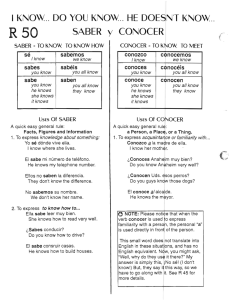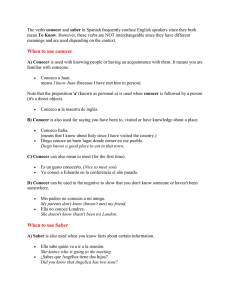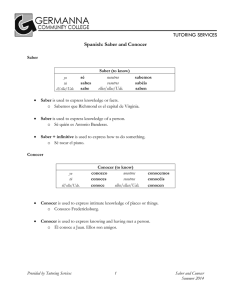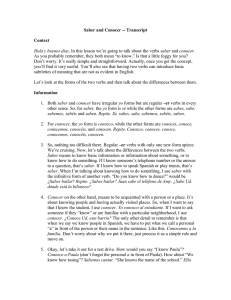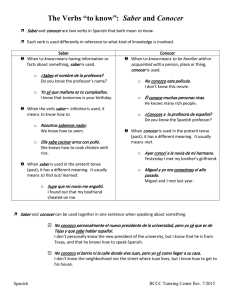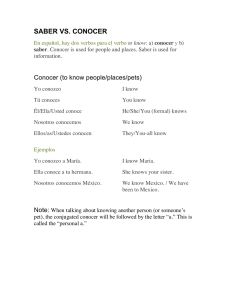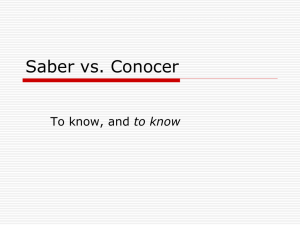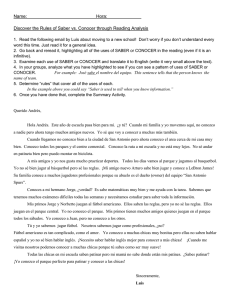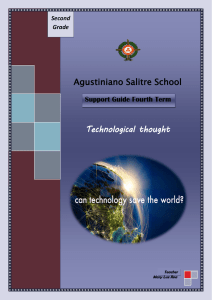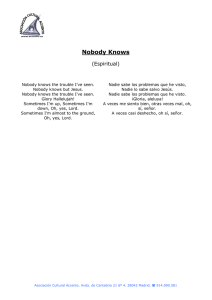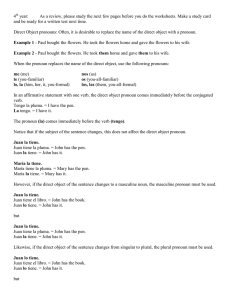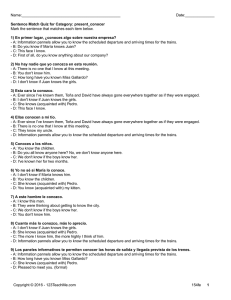Both Saber and Conocer are translated into English with the verb "to
Anuncio
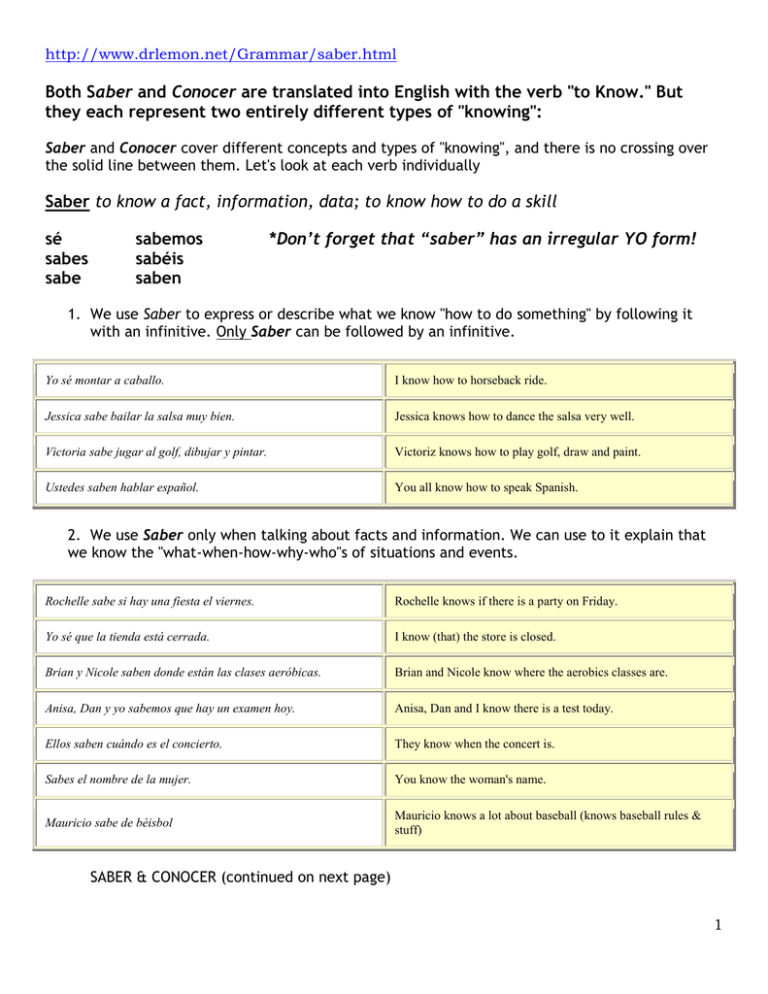
http://www.drlemon.net/Grammar/saber.html Both Saber and Conocer are translated into English with the verb "to Know." But they each represent two entirely different types of "knowing": Saber and Conocer cover different concepts and types of "knowing", and there is no crossing over the solid line between them. Let's look at each verb individually Saber to know a fact, information, data; to know how to do a skill sé sabes sabe sabemos sabéis saben *Don’t forget that “saber” has an irregular YO form! 1. We use Saber to express or describe what we know "how to do something" by following it with an infinitive. Only Saber can be followed by an infinitive. Yo sé montar a caballo. I know how to horseback ride. Jessica sabe bailar la salsa muy bien. Jessica knows how to dance the salsa very well. Victoria sabe jugar al golf, dibujar y pintar. Victoriz knows how to play golf, draw and paint. Ustedes saben hablar español. You all know how to speak Spanish. 2. We use Saber only when talking about facts and information. We can use to it explain that we know the "what-when-how-why-who"s of situations and events. Rochelle sabe si hay una fiesta el viernes. Rochelle knows if there is a party on Friday. Yo sé que la tienda está cerrada. I know (that) the store is closed. Brian y Nicole saben donde están las clases aeróbicas. Brian and Nicole know where the aerobics classes are. Anisa, Dan y yo sabemos que hay un examen hoy. Anisa, Dan and I know there is a test today. Ellos saben cuándo es el concierto. They know when the concert is. Sabes el nombre de la mujer. You know the woman's name. Mauricio sabe de béisbol Mauricio knows a lot about baseball (knows baseball rules & stuff) SABER & CONOCER (continued on next page) 1 3. Only Saber can be followed with que, qué, donde, dónde, si, cuándo [that, what?, where, where?, if, when?...] etc. These are words that introduce facts. Sabemos quien es el presidente de los Estados Unidos. ¿Saben Uds. quién es el governador de Pennsylvania? ¿Sabe los ingredientes des esta sopa rica? Ellos no saben cuántos problemas hay en el examen de álgebra. We know who is the president of the United States. Do all of you know who is the governor of Pennsylvania?. Do you know the ingredients in this delicious soup? They don’t know how many problems there are on the algebra exam. Conocer use when talking about places or people we are familiar with. When talking about “knowing a person”, a personal “a” is required. conozco conoces conoce conocemos conocéis conocen *Don’t forget that “conocer” has an irregular YO form! Conozco a Rosa María. I know Rosa María. ¿Conoces al novio de Rosa María? Do you know Rosa María's fiancé? Conoces bien San Francisco. You know San Francisco really well. Nick conoce un restaurante italiano buenísimo. Nick knows an excellent Italian restaurant. We also use Conocer to talk about general concepts or subjects: Conozco la poesía del Siglo de Oro. I'm familiar with Golden Age Poetry. Ella quiere conocer tu país She wants to visit (become familiar with) your country Conocíamos sus actividades. We were aware of (knew about) his activities. 2
